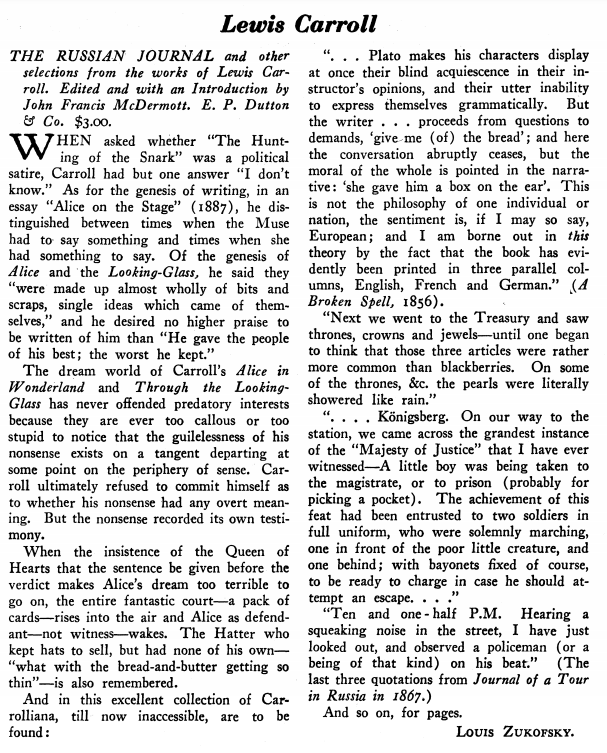On 1875-11-06 Carroll wrote in his diary about his Snark poem:
The first stanza was composed in July 22. 1874. “In the midst of the word…” which stands as the last verse of the poem. But the very last line, “For the Snark was a Boojum, you see” came into my head while out on a walk at Guildford, July 18[.]
Source: Edward Wakeling (Ed.), Lewis Carroll’s Diaries, Vol. 6, 2001, p. 432
I was walking on a hillside, alone, one bright summer day, when suddenly there came into my head one line of verse — one solitary line — “For the Snark was a Boojum, you see.” I knew not what it meant, then: I know not what it means, now; but I wrote it down: and, some time afterwards, the rest of the stanza occurred to me, that being its last line: and so by degrees, at odd moments during the next year or two, the rest of the poem pieced itself together, that being its last stanza.
Source: From Lewis Carroll’s notes, found in Alice on Stage, The Theatre, April 1887.
See also: https://web.archive.org/web/20240504231527/https://kellyrfineman.livejournal.com/173027.html
I think that leaving such a nice origination story to his readers is part of Carroll’s skillful marketing of his Snark ballade. Oliver Sturm, who translated The Hunting of the Snark into German (Die Jagd nach dem Schnatz. 1996, ISBN 978-3-15-009433-4, p. 85) called that a “Leimrute für Kritiker” (“lime twig for critics”). Sturm might be wrong. At least, Carroll didn’t make up the bright summer day.
I don’t think that Carroll dishonestly misleads his readers when he said “I know not what it means“. Of course he knows. He just made his poem as ambiguous as possible. The motive: Widening the interpretation space of his Snark poem. With that wider space, a book makes more readers happy (and therefore sells better, which is a nice side effect).
In case his readers (like me) think they have discovered some obfuscated meaning, it is the reader (again like me) who can be hold responsible for her or his interpretation, not the author. So, as for my interpretations, there still is the possibility that I am misleading myself.
This is why the Snark hunt never will end.
2017-12-17, updated: 2024-06-04
 Louis Zukofsky, “Review of Lewis Carroll, Russian Journal,” The New Masses (1935-10-08)
Louis Zukofsky, “Review of Lewis Carroll, Russian Journal,” The New Masses (1935-10-08)